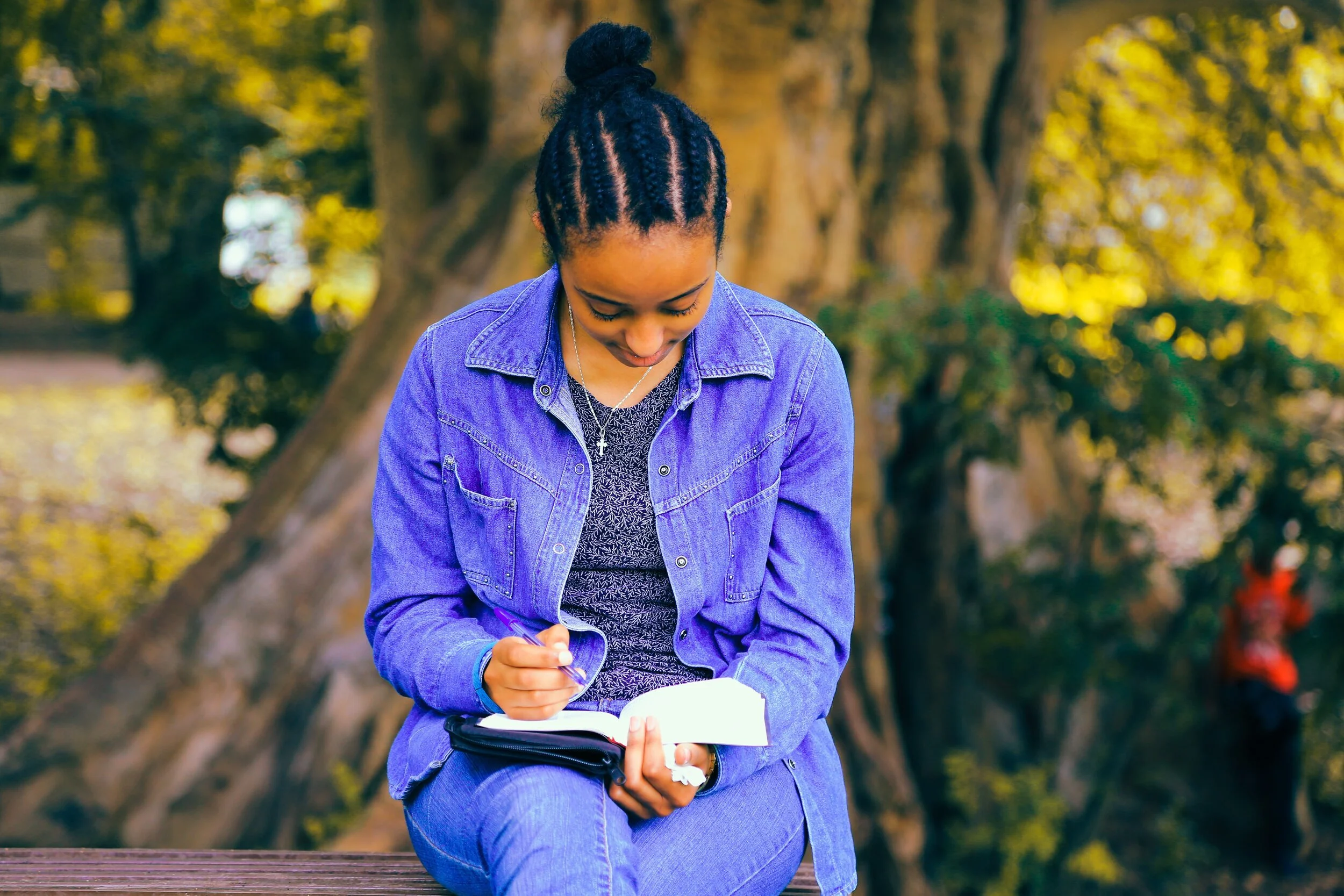Writing Tips from My Therapist
Photo by Gift Habeshaw on Unsplash
By LySaundra Campbell
One of the best things I did last year was reconnect with a therapist. Major transitions in life are usually my sign to seek professional insight. This was just before the holiday season—which has always been a difficult time for me—but when the pandemic surged, my anxiety started to suffer, which also impacts my writing.
I love working from home, but also having the option to go to a coffee shop. I love having roommates, but never asked questions to see if we’d survive each other during a pandemic. And don’t get me started on police brutality. Like many of us, I’ve been trying to process circumstance after circumstance. Anger, annoyance, and exhaustion are typical responses I heard from other Black folks and writers when we’re checking in. It’s difficult to process all that’s happening let alone write about it and have courage to share with others. What is there to share when some of us are overwhelmed by information and the news?
If you’re like me, you are tired. Even though I don’t always feel like I’m at capacity to write outside of my journal, I came across notes and suggestions from my therapist that helped my writing process near the end of 2019, and continue to help me process 2020.
Write without the intent to publish. We all know how the saying goes, “no one is reading your first drafts.” My therapist essentially told me the same thing. Journaling and prayer helps me process my emotions honestly, because I have a tendency to try to paint a silver lining around every crisis. Writing my prayers and what I feel helps me remain present, avoid toxic positivity, and sit with uncomfortable feelings. I even created a playlist to help me cry when I need to. Yes, my Enneagram is 4w5, I make playlists and cling to beautiful things when I’m anxious. I started attending virtual writing workshops that provide the option to opt out of sharing with the group, too. Since, I’ve written several new poems that I plan to re-write and eventually share. But I couldn’t get there until I gave myself permission to be honest about how I was feeling.
Find your happy place. This was an exercise I started doing last year with my therapist to process anxiety. She’d tell me to imagine a happy place and to be specific about every little detail. Who’s there? Am I alone? What do I smell, see, feel? Am I in a specific city? I started describing my happy place and before I knew it, I started writing about a cookout and block party in Harlem with all my family and friends! My therapist encouraged me to continue with the specifics about every detail down to the weather. “What weather makes you happy?” she’d ask. For me, it was a 68-72 degree day, partly sunny with a light breeze. Not a strong wind that makes all the food on the table fly everywhere—or when you have to hold the tablecloth down with tape—but a little breeze to cool us down while the sun beamed. This exercise helps us dream of what could be, not from a place of envy but from a place of hope. I realized this simple activity came more naturally to me as a kid; I was always daydreaming, always imaging a different reality, and, as a result, always writing.
Write letters to people. This is also without the intent to publish. I know a lot of people are writing letters to family and friends, and know that many people have lost family or friends as a result of the pandemic. The exercise reminded me of the Maya Angelou quote, about bearing an untold story inside of you.
“There is no greater agony than bearing an untold story inside of you.”
— Maya Angelou
I think that’s one of the hardest parts about processing grief and loss—whether we lose people or expectations and goals for a year—there’s so much that’s left unsaid, and that’s a terrible agony to experience. This exercise helped me process ongoing grief I’ve had since my dad passed away when I was 12. As an adult, there are millions of things I’d like to talk with him about, but I can’t. So I was encouraged to write, without inhibitions, and since he’s dead, without the expectation that he’ll read it one day. And now, I’m working on a book. That wasn’t my therapist’s advice or intent, but I’m still a writer.
These tips have helped me through this pandemic, but they’re also helpful for the usual writer’s block and writing process. I hope you’ll find them useful, too!
LySaundra Campbell is a storyteller, writer, and editor based in Harlem, New York. Say hello and follow her on Instagram.
You May Also Like:

